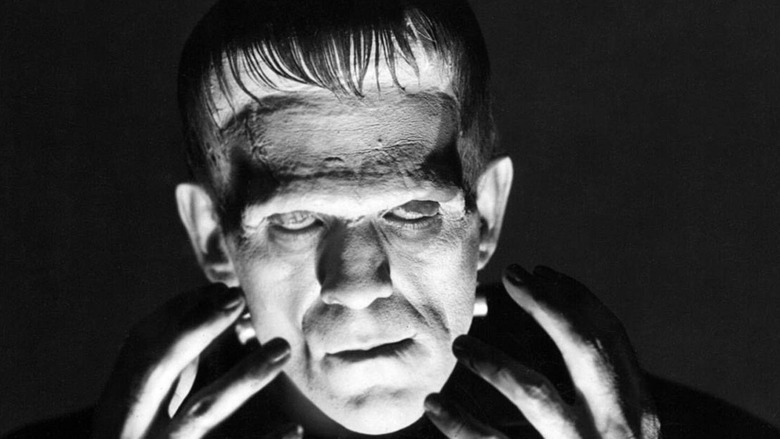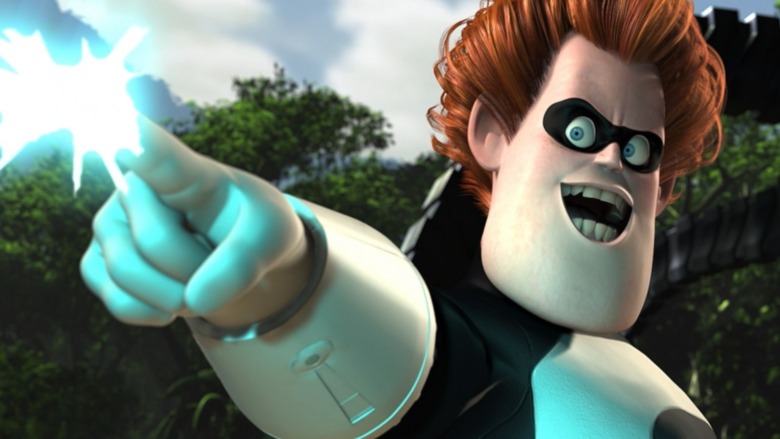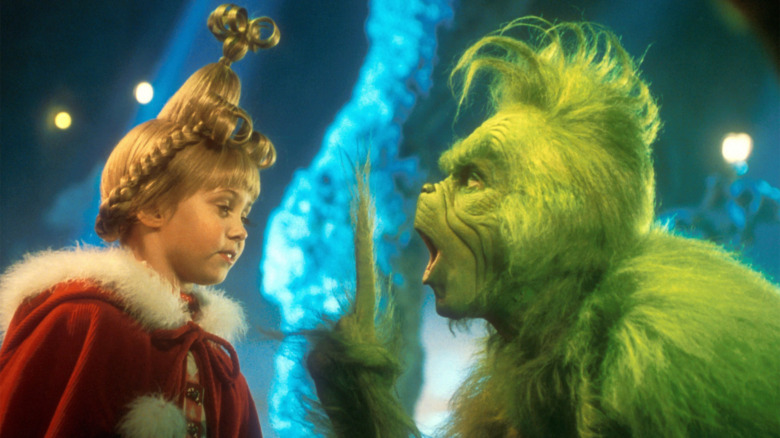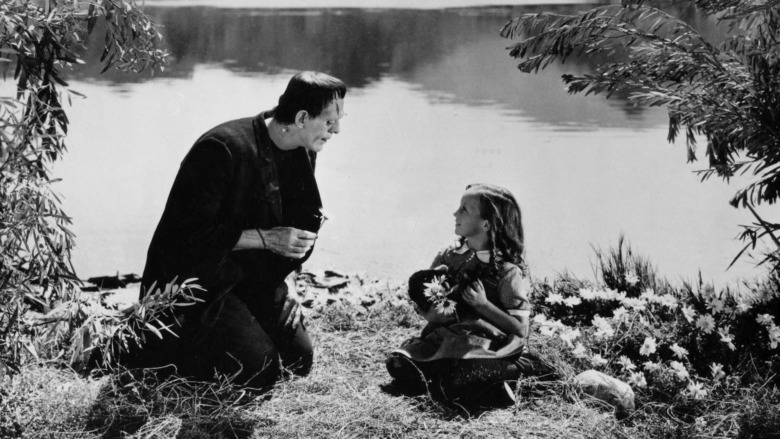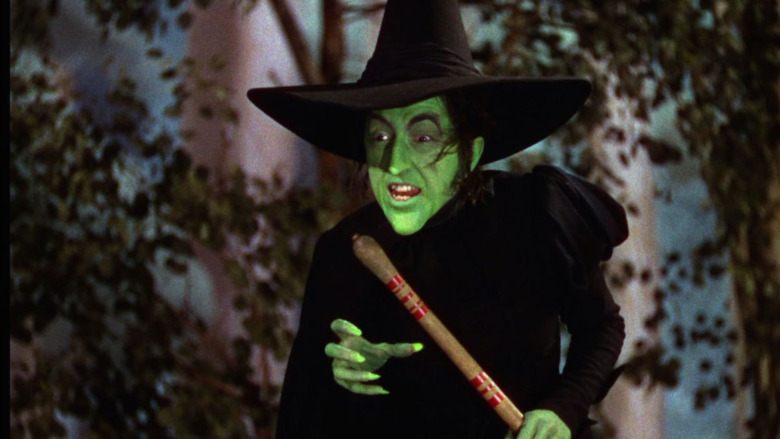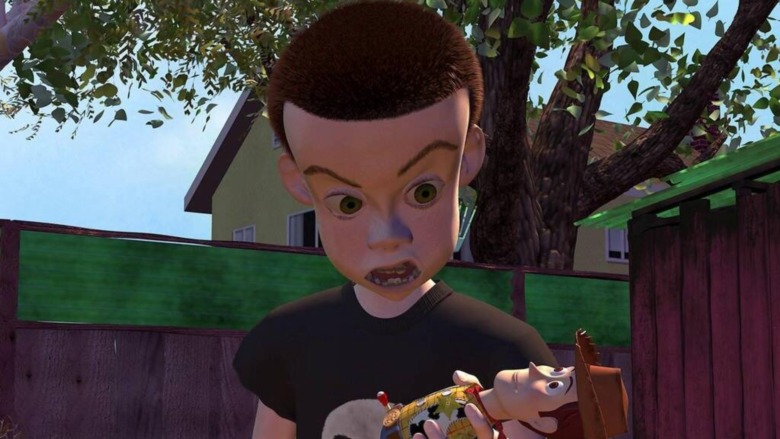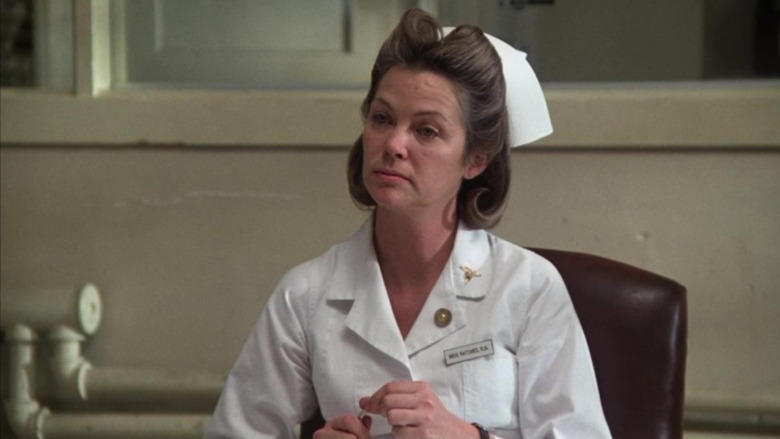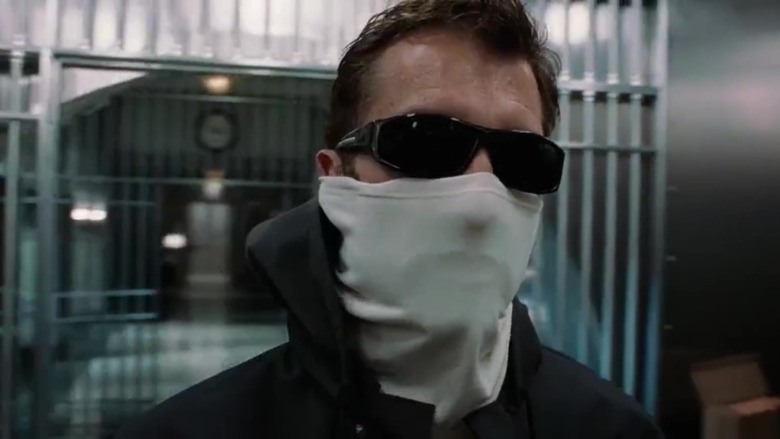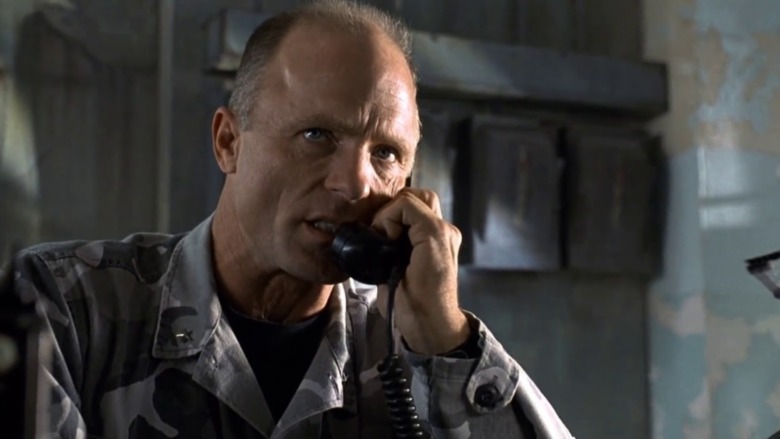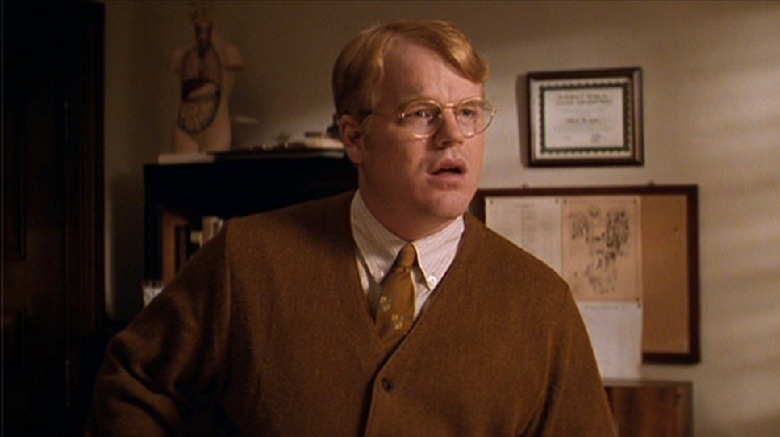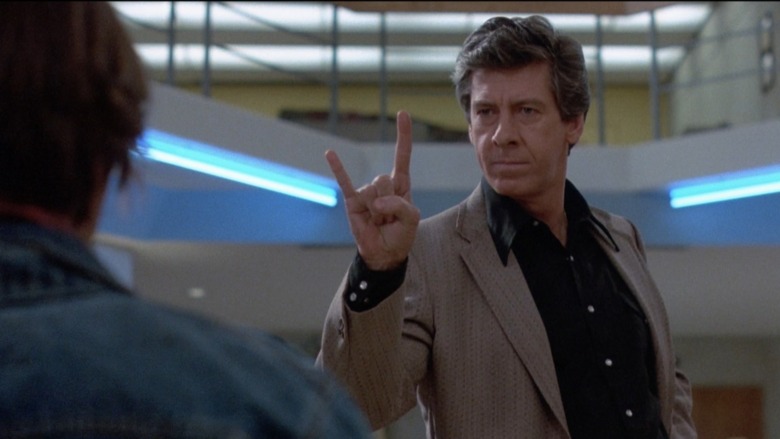Bad Guys That Never Really Did Anything That Terrible In Movies
Every hero needs a villain.
It didn't take human beings long to understand that when it comes to storytelling, a hero isn't really impressive unless he or she has an antagonist breathing down their neck and putting something they hold dear in jeopardy.
Whether it's something as high-stakes as the cold and calculating Thanos trying to wipe out half the galaxy, or the goofy and cartoonish threats from Dr. Evil, heroes and stories are spurred along by the men and women who are willing to do bad things for their own nefarious reasons.
However, not all big bads are created equal. Sometimes villains can be so inept and bad at their own game that it leaves the heroes with very little to combat and the audience scratching their heads as to why their big, evil master plan was even a blip on the hero's radar.
Sometimes a story's villain can be someone who either isn't all that bad, or isn't capable of doing anything particularly naughty. But sometimes, they still manage to produce worthwhile tension before all is said and done and they're lying face-down, likely on a rooftop, at the hero's feet.
Everyone has heard of the unsung hero. However, very few unsung villains ever get their due... until now. To help highlight the not-so-evil but maybe just plain old misbehaving, here is a rundown of big bads that were neither particularly big nor bad.
Syndrome from "The Incredibles" (2004)
As far as villains go, Syndrome is a bit of a meta character in The Incredibles universe. He got his start as a fan of Mr. Incredible who went to great lengths as a child to become his sidekick. After he was rejected by his personal hero, he followed a path of villainy. However, his ultimate goal was not to hold the world hostage or seek direct revenge on the people who wronged him. Ultimately, Syndrome used his life to do everything he could to get himself into the superhero club.
He became a weapons engineer who developed a robot that he used to systematically defeat other superheroes with the intention of battling it himself — knowing he had full control over it — so the world would see him as the hero he always believed himself to be.
Sure his actions directly led to superheroes getting defeated, but fighting giant robots is kind of their job. In the end, Syndrome's biggest crime was unleashing a killer robot on a major metropolitan city in what he believed to be a controlled experiment. The fact that it went haywire and forced real superheroes to stop it isn't a testament to what a bad guy Syndrome is, but rather what an inept hero he was.
Sure, he went a little crazy after his master plan failed, attempting to kidnap baby Jack-Jack. However, he thought he was doing the kid a favor by getting him away from his super parents. So, he's not such a bad guy...just a bad babysitter?
The Grinch from "How the Grinch Stole Christmas" (2000)
"Every Who down in Whoville liked Christmas a lot. But the Grinch who lived just North of Whoville did not!" — And that's kind of the extent of this character's villainy.
When we're introduced to The Grinch (played, in this version, by Jim Carrey), he's notorious around the town for being meanspirted and prickly to say the least. He doesn't like the joyous people of Whoville so he keeps to himself until Cindy Lou-Who does everything she can to get him to participate in the holiday season. This sparks a wild adventure that ultimately leads the big-green fuzzball to destroy the easily-rebuilt holiday celebration in town and then rob the entirety of Whoville of its presents on Christmas Eve.
The Grinch is by no means a nice character and he devotes far too much of his life to actively trying to make the lives of the people he hates worse. However, before Cindy came along and reopened old wounds from his childhood and convinced him to participate in something that he didn't want to do in the first place, The Grinch was content to just stay up on his mountain and be left alone.
Ultimately, though, things work out for the best after he successfully steals Christmas and is moved by the fact that it didn't dampen the town's spirits at all. He then reverses his big, evil master plan to steal Christmas and rides the gifts back down to Whoville. You know, victimless crime.
In the end, no one was worse off for The Grinch's antics and it didn't take some good guy to knock sense into him.
The Monster from "Frankenstein" (1931)
Somewhat loosely based on the novel by Mary Shelley, this horror classic depicts the creation and subsequent demise of mad scientist Dr. Frankenstein's monster (not to be confused with the doctor himself).
It's unclear exactly what was done to the corpse before Frankenstein hit it with some lightning and gave it life, but the ultimate result was a large, very strong giant of a man who was as ignorant to his own existence as he was to the rest of the world around him.
When the monster comes to life, he's not the grotesque predator that people often associate with monsters. Instead, he's a childlike oaf that desperately needs some direction — a parent of sorts.
Instead, his twisted visage is misunderstood and he's banished by even his own creator, who tries to kill him when he realizes what he built will be too hard to control. When the monster escapes, he makes the town fear him by killing a little girl, but the audience is aware it was merely an accident born out of his ignorance of life and its delicacy. He doesn't understand that throwing a human into water can lead to them drowning, so is it really his fault that the event took place at all, or the person who created him for not teaching him such things?
We don't fault a child for their ignorance, so why should the monster be treated any differently just because he's very, very scary-looking?
The Wicked Witch from "The Wizard of Oz" (1939)
Despite being synonymous with villainy, and painting the default picture of "witches" for decades after the film came out, the green-skinned Wicked Witch of the West (Margaret Hamilton) provides a lot of antagonistic fodder for The Wizard of Oz despite not actually doing anything that bad.
When we meet her, she is furious with the Munchkins after seeing that a house has crushed her sister. While perhaps not the most level-headed reaction, it's somewhat reasonable. She then tries to collect her sister's magical ruby slippers, only to find that the woman who murdered her sibling is now wearing the powerful magic items — in essence, having looted the corpse of her sibling.
The audience is told that this is to prevent such a wicked person from obtaining even more power, but, on paper, it's hard not to be on the witch's side. She spends the rest of the movie benignly threatening Dorothy and her cohorts on the Yellow Brick Road. However, she barely dips a toe in the evil waters until she finally captures Dorothy and announces plans to kill her — before ultimately melting when she's accidentally hit with some water (what a world, indeed).
In the end, the hero of the movie is a woman with two accidental murders and shoe theft under her belt and the "wicked" witch is someone who was trying to get her family's property back after a freak accident. Sure she was scary, especially for a 1930s audience, but being cross is not the same as being evil. Frankly, given the circumstances, Dorothy was given quite a lot of leeway.
Sid from "Toy Story" (1995)
This enchanting film about a world in which children's toys come to life when no one is around is marred by the presence of a young sociopath who lives next door named Sid. In the movie, the toys fear him and his propensity to disassemble, reassemble and explode toys for his own amusement.
While he's an obvious villain to the movie's toy main characters, in taking a mental step backwards, it's apparent that Sid is just a curious kid with a twisted knack for engineering. That's not to say that pretending to torture toys isn't alarming behavior, it's just incredibly harmless if you're unaware the toys are sentient. In fact, when Woody and the rest of Sid's mutant toys reveal themselves as being alive, Sid is horrified to learn that this thing he thought was harmless fun had seemingly marked him for torment by every toy in the world. If you put yourself in Sid's shoes for a moment, the toys coming to life is essentially a horror movie where he's the one who thinks he's in danger.
So Sid likes to add a little bit of heavy metal attitude in his craftsmanship — that doesn't make him a bad guy. In a movie where toys are fearing for their lives around him, the actual "worst thing" he did was torment his little sister by stealing and mutilating her doll. Again, deplorable behavior, but a far cry from outright villainy.
Unfortunately, we don't learn more about Sid in the subsequent films other than that he became a sanitation worker. It would be interesting to see if did indeed learn his lesson, and started treating toys with more respect.
Nurse Ratched from "One Flew over the Cuckoo's Nest" (1975)
Nurse Ratched (played Louise Fletcher in an Oscar-winning performance) has gone down in film history as one of the most sadistic, vile characters to ever be presented as a medical professional. But really, how bad was she? The woman had the impossible job of trying to bring order to a ward filled with high strung mental patients, and managed the difficult task every day of attempting to keep them safe, keep them in good spirits, and basically prevent everything that ended up happening in the third act.
In Cuckoo's Nest, she was portrayed as a tyrant who seemed to take sick pleasure in exercising her limited powers of over the lives of some generally helpless people. To a degree, that's completely true. Nurse Ratched could reasonably be described as pretty far from being a good human being, let alone a qualified medical professional. However, at the end of the day, she was just what her job required.
Prior to the arrival of the spirited McMurphy (played with iconic perfection by Jack Nicholson, who also won an Oscar), her ward was calm and structured. The patients were cared for, and she appeared to be trying to treat their various mental illnesses to the best of her ability. Looking at things objectively, Ratched was simply unqualified for her job and those above her weren't offering any sort of guidance or support. What she had wasn't an evil plan, but an HR issue.
An old soul with strong ideas about how people should behave, Ratched put extraordinary people into ordinary boxes. Ultimately, her crime was ignorance.
Dalton Russell from "Inside Man" (2006)
In this hit movie from Spike Lee, Dalton Russell (played by Clive Owen) was a man of action and cunning. He was also undeniably cocky. He opened the movie, in fact, by explaining to the audience that he was really smart and had recently pulled off the perfect bank robbery.
What ensues in the film is a clever cat-and-mouse game between Russell and NYPD Detective Keith Frazier (Denzel Washington) as the audience learns through flashback what exactly Russell's master plan was. As it turns out, while he was certainly more clever, he's not nearly as nefarious as other bank robbers.
The flick explains that the particular bank being robbed was owned by a man who had made his fortune selling Jewish people out to the Nazis during World War II. You see, he used his own bank to keep proof of his Nazi connections safe, along with a ton of ill-gotten diamonds. So, Russell's target all along was to out this guy and punish him for his misdeeds. Kinda makes Denzel seem like the bad guy for getting in his way, no?
Sure, Russell is still technically a villain. Taking hostages and assault people is not kosher in most municipalities. However, it is later revealed that no one was ever in any actual danger because the guns were fake, the threats of murder were lies and the take from the bank robbery only impacted the war criminal. So, is "no harm no foul" a legal defense?
Brigadier General Francis X. Hummel from "The Rock" (1996)
Terrorism is never a smart solution. But, if someone is merely using the threat of violence with no intention of actually harming people, and doing it for a good cause, now we're entering a moral gray area.
Such was the case with Brigadier General Francis Hummel (played by Ed Harris). The Rock opened with him losing a soldier as he stole some deadly VX gas so he could carry out an elaborate plan to hold the city of San Francisco ransom in exchange for money from a secret military slush fund he wanted to use to pay his men and the families of lost clandestine Marines who were not given their financial due by an ungrateful government.
Obviously, taking over Alcatraz Island and holding tourists and a whole city hostage to get what you want is not "good guy" behavior. Having said that, his ultimate plan was to threaten the city, not actually harm anybody. In fact, Hummel ultimately gave his life so that to prevent his own plan from actually taking place.
As mentioned above, the threat of violence vs. actual violence presents a gray area. However, a larger gray area emerges when the reason you're doing it is to give poor military families the money they're owed due to their lost loved one's service. While Hummel was by no means one of the heroes of the movie, it's hard to call him an outright baddie since the worst thing he did was make a few threats.
Mitch Roman from "Patch Adams" (1998)
Robin Williams starred as the loveable, albeit unorthodox, physician who laughed his way through medical school and reminded uptight, conservative and otherwise stuffy doctors that they were there to treat patients, not diseases in this hit Tom Shadyac film based on a true story.
But perhaps none of those old school doctors was as uptight, conservative and stuffy as Patch's medical school roommate, Mitch Roman (played by Philip Seymour Hoffman). Of course, Patch's story wouldn't be worth much if there wasn't a negative fussbudget standing in his way, but Mitch crossed the border into full antagonist when he passed on an accusation to the dean that his roommate was cheating his way through college. After all, with how little Patch studied and how carefree his lifestyle was, how could he possibly have been taking medical school seriously?
Mitch is a bit of a twit, but he's kind of onto something. In a heartfelt speech delivered in only the way Hoffman could, Mitch explained that he doesn't take med school lightly. He felt that Patch's method flew in the face of everything medical professionals like his father and grandfather built, and he didn't want anyone who may even have a whiff of falsehood engaging in the profession.
That's not actually such a bad take, and honestly, the man is entitled to his opinion. Yes, his suspicion of Patch's cheating was incorrect, but in the end he is ultimately won over by Patch's infectious enthusiasm and becomes a friend. So, he's basically the least antagonistic antagonist ever.
Vice Principal Richard Vernon from "The Breakfast Club" (1985)
It's really hard to go to bat for an authority figure, especially one as gruff and shortsighted as Vice Principal Vernon (played by Paul Gleason) in The Breakfast Club.
Without a doubt, he's the villain of the John Hughes classic. After all, he's the reason these five kids are locked in detention, and he's clearly enjoying his power trip over them. However, it's hard to call the man a "bad guy" when he's really just a hired disciplinarian carrying out his job duties.
The worst thing Vernon did to the kids was when he tried to goad the troubled rebel Bender (Judd Nelson) into physical violence so he could get him in real, adult trouble. But his actions come from a place of fear, from realizing that this generation of high schoolers would someday inherit the country and pass him by as an old, feeble man. All of his posturing, ultimately, was just his own form of tough love.
That said, he wasn't even that committed to the job of disciplinarian. A conversation with the weekend janitor made him realize that cruelty was not the best way to make young minds understand his fears. Although the movie never covers it, it's heavily implied that he changed his ways in light of his experience that day with the Breakfast Club. In some ways, the morning probably had as profound (and positive) an impact on his life as it did theirs.
In short, Vernon was just a guy doing his job, and that's no bull. We would never do that, because he imparted upon us a lesson he also shared with those five impressionable young minds: anyone who messes with the bull is indeed going to get the horns.
